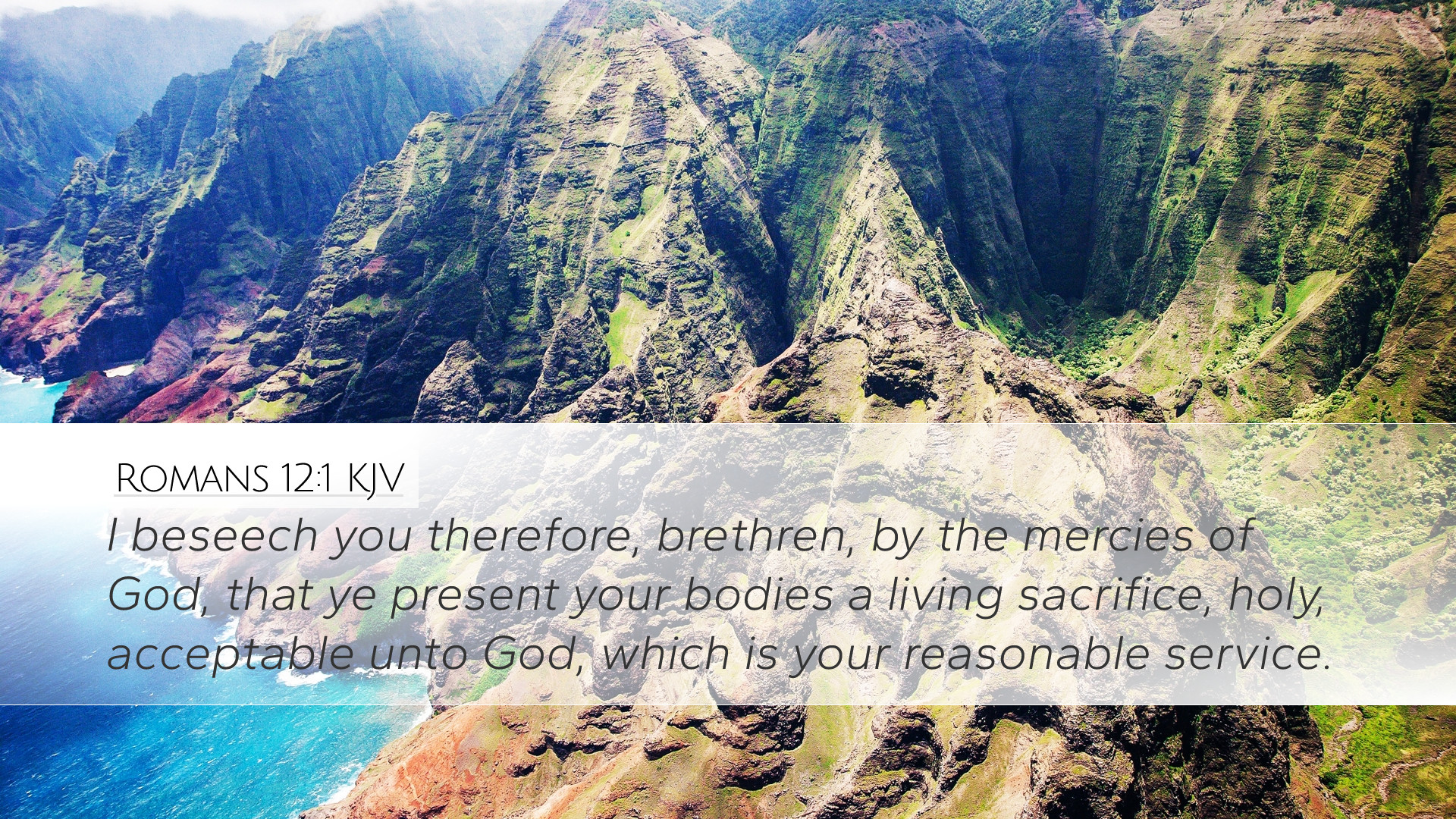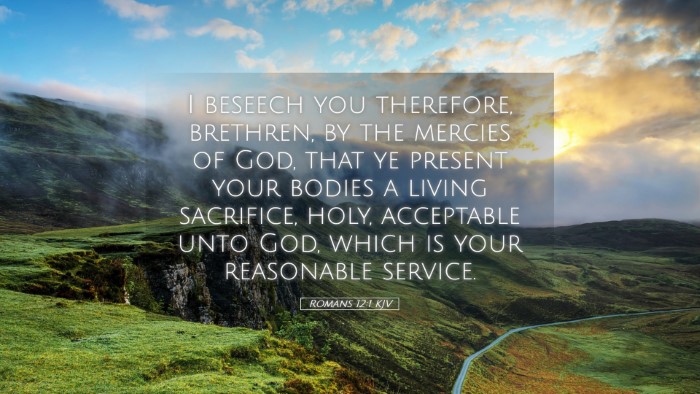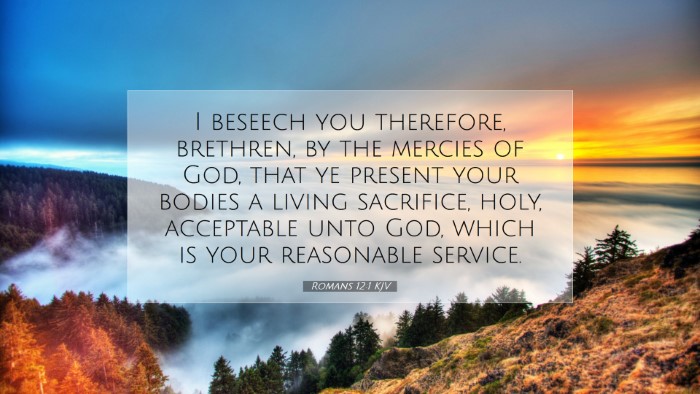Old Testament
Genesis Exodus Leviticus Numbers Deuteronomy Joshua Judges Ruth 1 Samuel 2 Samuel 1 Kings 2 Kings 1 Chronicles 2 Chronicles Ezra Nehemiah Esther Job Psalms Proverbs Ecclesiastes Song of Solomon Isaiah Jeremiah Lamentations Ezekiel Daniel Hosea Joel Amos Obadiah Jonah Micah Nahum Habakkuk Zephaniah Haggai Zechariah MalachiRomans 12:1
Romans 12:1 KJV
I beseech you therefore, brethren, by the mercies of God, that ye present your bodies a living sacrifice, holy, acceptable unto God, which is your reasonable service.
Romans 12:1 Bible Commentary
Commentary on Romans 12:1
Verse: "I beseech you therefore, brethren, by the mercies of God, that ye present your bodies a living sacrifice, holy, acceptable unto God, which is your reasonable service."
Introduction
This pivotal verse in the Epistle to the Romans serves as a transitional statement that not only encapsulates Paul’s theological arguments but also indicates a shift into practical application. In Romans 1-11, Paul expounds upon the mercies of God, revealing the depth of God’s grace and the provision of salvation. In Romans 12, he calls on believers to respond to God's mercy with a life of dedication and service.
The Plea of Paul
Paul begins with a heartfelt appeal: "I beseech you therefore, brethren." This language is significant; it shows his earnestness and urgency. He does not command; rather, he pleads because he understands the weight of the message he is imparting. As Matthew Henry notes, “the appeal is to their reason, conscience, and affections.” Paul considers the understanding and feelings of believers, encouraging them to recognize the significance of their transformation in Christ.
By the Mercies of God
When Paul refers to "the mercies of God," he highlights the abundance of grace received through faith in Jesus Christ. Albert Barnes emphasizes that it is this mercy that empowers the believer to live righteously. Mercy is foundational to Christian living; understanding the grace bestowed upon us compels a response of gratitude and sacrifice.
A Living Sacrifice
Paul instructs believers to present their bodies as a "living sacrifice." This metaphor of sacrifice is significant. In the Old Testament, sacrifices were animals offered as atonement for sin. However, Paul suggests a living sacrifice, indicating a continual state of offering one’s life, not merely performing isolated acts of worship. As noted by Adam Clarke, “to be living sacrifices is to be constantly devoted to God’s purpose.” This emphasizes the ongoing nature of our commitment to God.
Holy and Acceptable
He further qualifies this sacrifice as "holy, acceptable unto God." The term “holy” indicates separation from the world and a life dedicated to God’s service. Thus, the believer’s life is to be transformed and set apart, demonstrating moral and spiritual purity. Matthew Henry articulates that holiness is not just a position but a practice; it involves living out one’s faith through obedience and righteousness. In addition, the term “acceptable” suggests that the believer's offerings must align with God’s will and standards, as God desires worship that comes from a sincere heart.
Your Reasonable Service
The phrase "which is your reasonable service" conveys that this act of presenting ourselves as living sacrifices is not only appropriate but is an act of rational worship. Albert Barnes points out that given the great mercies we have received, this is a logical response. This notion directly challenges the idea that worship is merely ritualistic. Instead, it implies that true worship encompasses an entire life devoted to God’s will and purpose.
Application for Believers
- Dedication: Believers are called to a life of dedication, offering all aspects of their lives to God.
- Transformation: This verse is an encouragement to undergo personal transformation, allowing God’s mercies to shape our character and actions.
- Holiness: The requirement of holiness invokes a pursuit of purity and righteousness in thought, word, and deed.
- Worship: Understanding worship as a lifestyle rather than an event encourages ongoing devotion and service to God.
Conclusion
Romans 12:1 is not merely a call to action; it is a profound reminder of the deep reciprocal relationship between divine mercy and human response. It urges believers to reflect on God’s mercies, inspiring a commitment that is both rational and heartfelt. In light of Paul’s plea, pastors, students, theologians, and scholars can glean significant insights into the nature of true worship, the essence of genuine discipleship, and the call to live out the doctrines of grace in practical, life-affecting ways.


